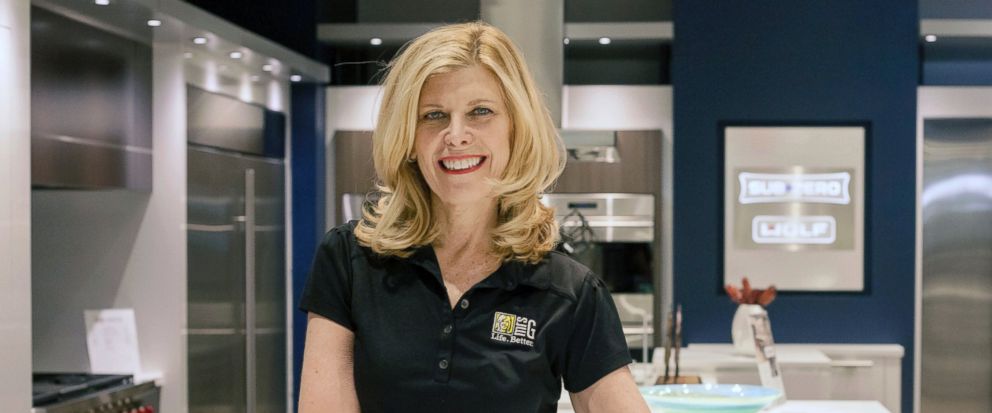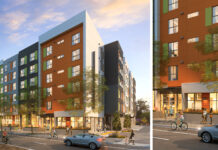 NEW YORK: A slowdown in home sales is creating opportunities for small businesses like home renovators and appliance dealers.
NEW YORK: A slowdown in home sales is creating opportunities for small businesses like home renovators and appliance dealers.
Business is up at Brad Beldon’s home exterior renovation company, which does roofing, windows, siding and other work in 15 markets across the country. Many of Beldon’s customers are homeowners who aren’t selling because they can’t find other houses they like and can afford.
“People are more willing to do a significant investment in their current homes, knowing they plan to be there for a while,” says Beldon, whose eponymous company is based in San Antonio. Beldon’s revenue was up about 7 percent in 2017, and he expects a similar gain this year.
Beldon’s company handles projects that can range from $5,000 gutter replacements to $80,000 window installations. Some owners are also putting additions on their homes. Business is so good that some projects, particularly windows, can be delayed several months while manufacturers catch up with orders, and Beldon, who has about 500 employees, hopes to hire 100 more this year.
Home sales have slowed in recent months as the number of available houses dwindled. Sales of occupied homes fell 3.2 percent in January and 3.6 percent in December, and the number of sales contracts signed in January dropped nearly 5 percent, according to the National Association of Realtors. Among the reasons: Prices are high and mortgage rates are rising, which means many owners who’d like to sell and get another home can’t afford to. And so they don’t put their houses on the market.
Beldon knows firsthand the frustration of people who can’t move – he and his wife want a smaller house because most of their children are grown, but so far their search has been futile.
“Our home is double the size we need, but it’s hard to find one that would meet what we want,” he says.
Meanwhile, many houses bought at bargain prices during the Great Recession went to investors who use them for rental income. And some owners can’t sell their homes because they’re still “underwater” after the recession – 2.5 million people owe more on their mortgages than their homes are worth, according to CoreLogic, a company that researches the real estate market.
Beneficiaries of the slowdown include companies like Beldon’s and contractors who handle interior work, renovating kitchens and bathrooms, finishing basements and building additions. Decorators, appliance dealers and painters all stand to pick up more business.
Rentalutions, an app that helps people find and screen tenants for homes they can’t sell, has doubled the number of its users over the past year, co-founder Ryan Coon says. Many users are people who relocate for work but can’t afford to sell at a loss or lower price. They end up becoming landlords until they’re able to find a buyer who can meet their asking price.
U.S. home prices rose 6.3 percent in 2017, the fastest 12-month pace in more than three years, according to the S&P CoreLogic Case-Shiller national home price index. Meanwhile, mortgage rates are at a four-year high; 30-year fixed mortgages averaged 4.46 percent last week.
Although appliance dealers have lost sales they might have made to new homeowners, they’re picking up business from people who are staying put and want new refrigerators, washers and dryers, says Debbie Schaeffer, owner of Mrs. G, an appliance retailer in Lawrence Township, New Jersey.
Homeowners who bought appliances from 2002 to 2005 during the housing boom are now replacing machines that are wearing out. Mrs. G’s revenue rose 7 percent last year and the company is hoping for a more than 10 percent increase in 2018.
“People are confident and spending money and reinvesting in their homes,” Schaeffer says.
Revenue at Patrick Kennedy’s custom woodworking company has been up between 10 percent and 15 percent the past few months as homeowners who aren’t moving decide to dress up their homes. Kennedy’s Doylestown, Pennsylvania-based business, Superior Woodcraft, creates cabinets, shelving and other wood built-ins.
Some of his customers decided to renovate because they were looking for a specific feature in a new home and couldn’t find it. So he’s been building libraries and bars as well as new kitchens and bathrooms. And with more people working from home, he’s also creating home offices.
Because homeowners aren’t going to invest hundreds of thousands of dollars in a house, they’re willing to sink tens of thousands of dollars into their current homes. Still, Kennedy doesn’t see freewheeling spending.
“They’re setting forth budgets and really want to stick with them,” Kennedy says. “They don’t mind spending as long as they see the value in what they’re receiving.”
But business owners in the real estate business, including brokers, are having a tougher time as sales slow. While they can garner larger commissions because of higher prices, they’re making fewer sales. And because many people turned to real estate sales for jobs when the housing market began recovering in 2012, there’s a lot of competition for those fewer deals.
That has Wendy Papasan ratcheting up her marketing efforts, making Papasan Properties more visible to homeowners in Austin, Texas, and its suburbs. The median single-family home price in the Austin-Round Rock area was up 3.6 percent in January from a year ago, the Austin Board of Realtors’ says. And the region had 1.9 months of homes on the market, compared to the six to six-and-a-half months that researchers at Texas A&M University consider necessary for a balanced housing market.
Part of Papasan’s strategy is to look for owners who are trying to sell houses on their own; the agency offers to act as their broker. Papasan also runs investment seminars for homeowners, holds free movie nights and stays in touch with past customers in the hope they can refer their family and friends.
“I see a slowing market as an opportunity for us to increase market share,” Wendy Papasan says.-AP







